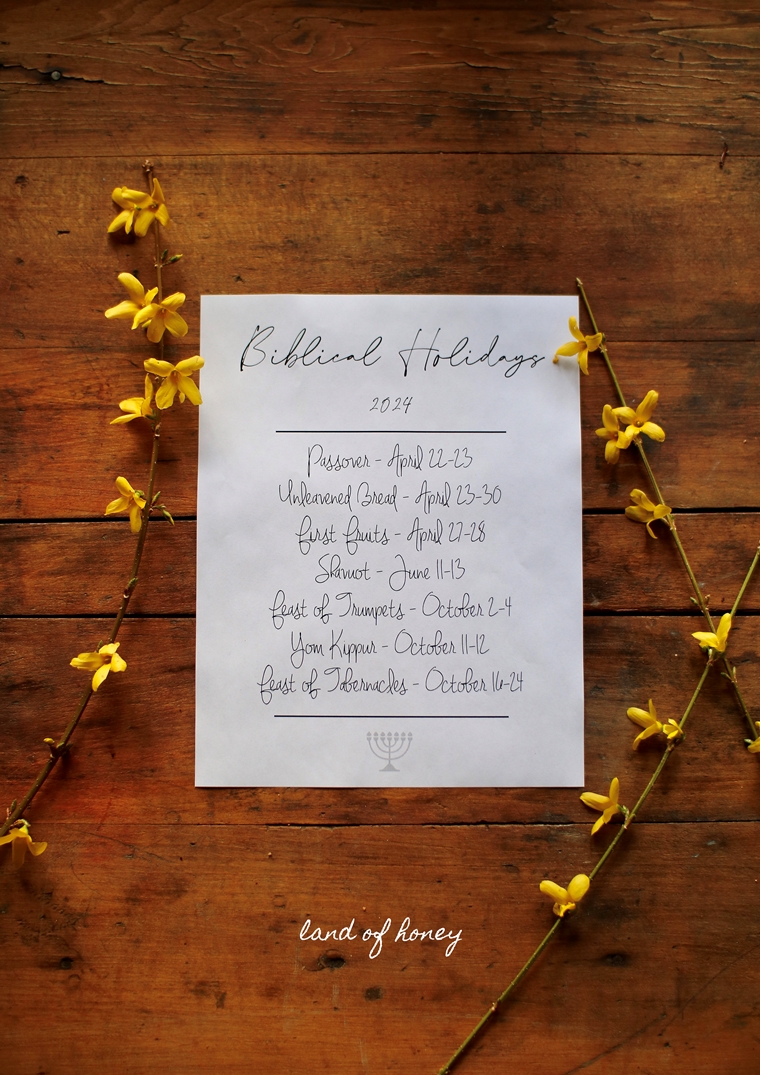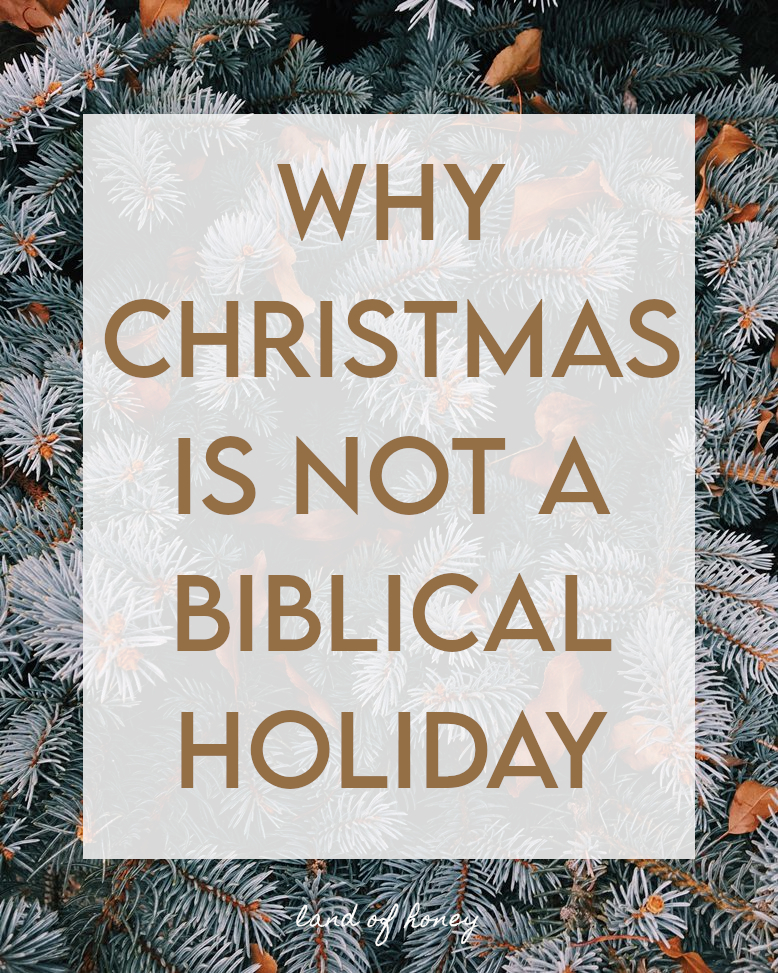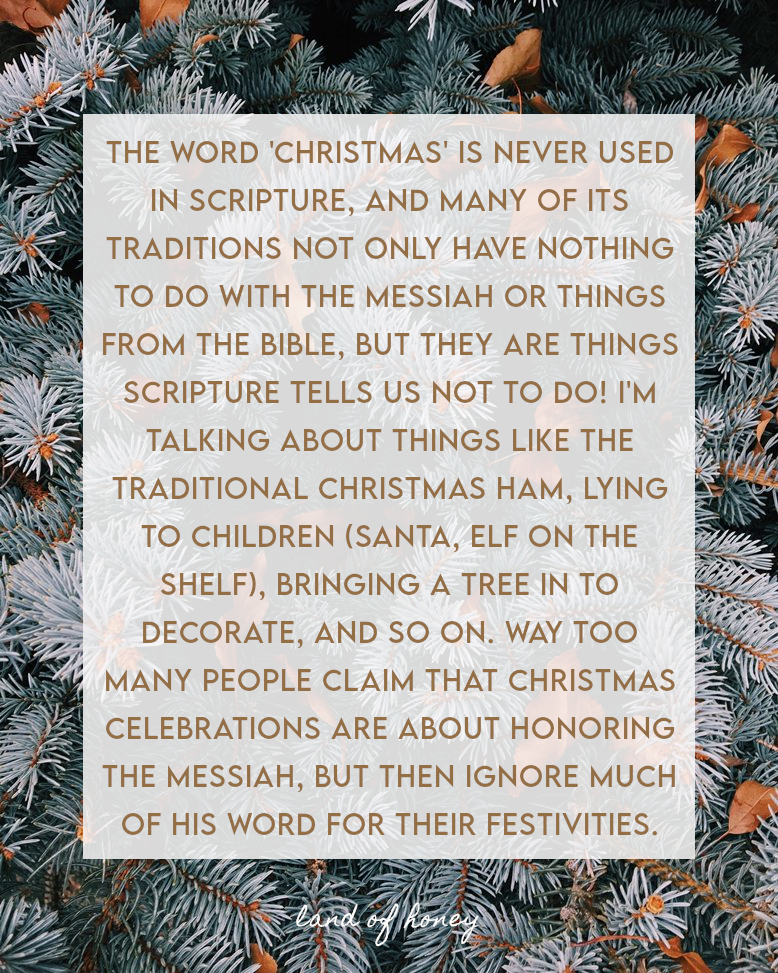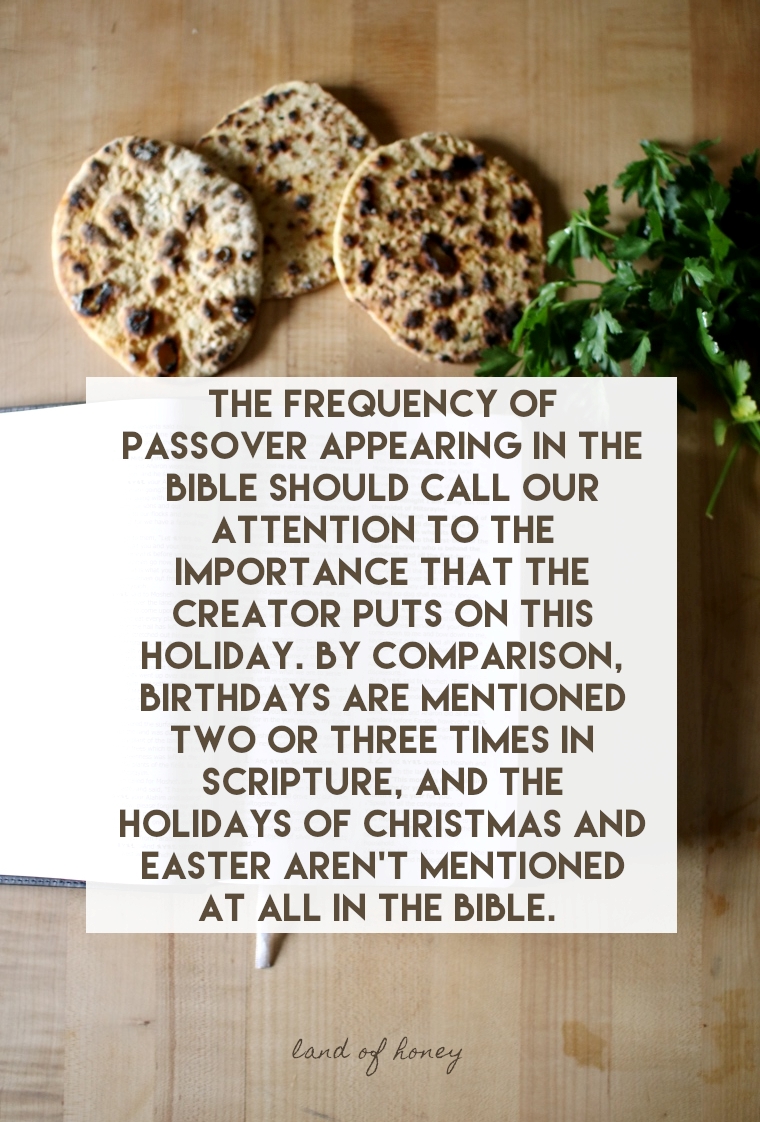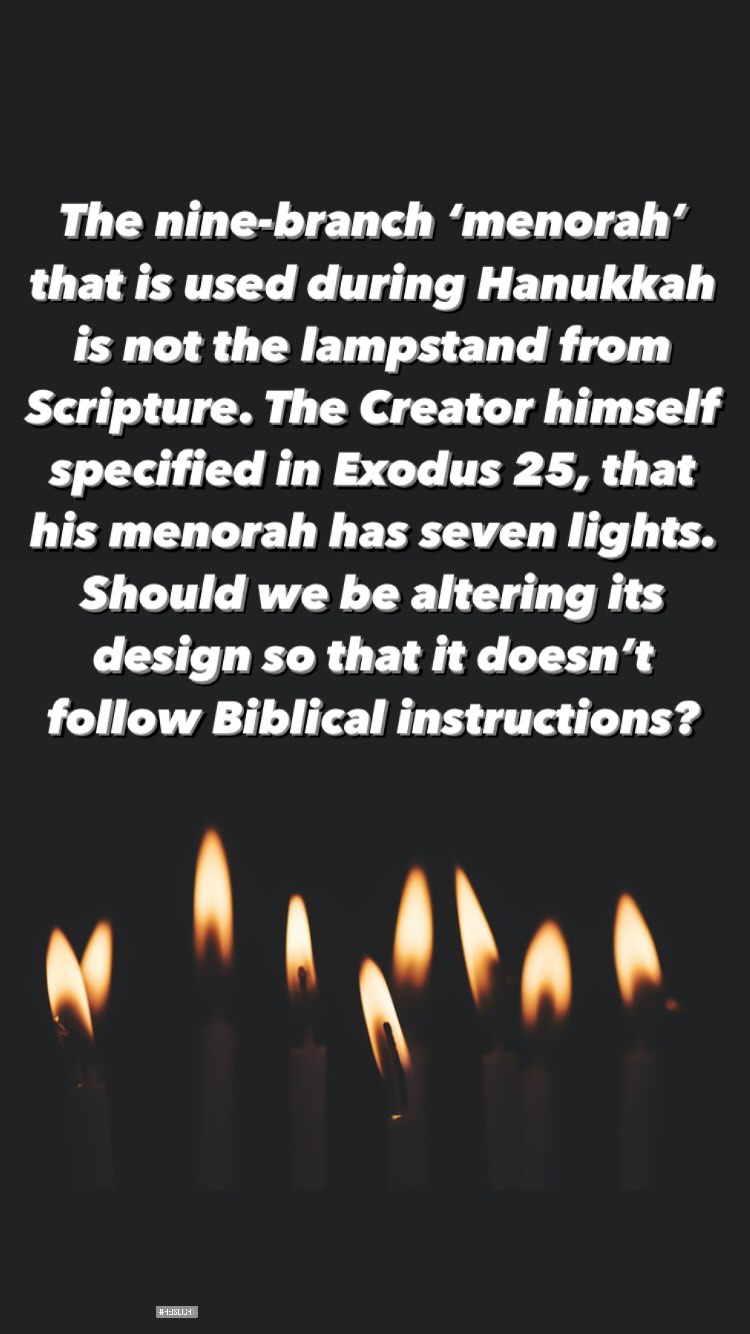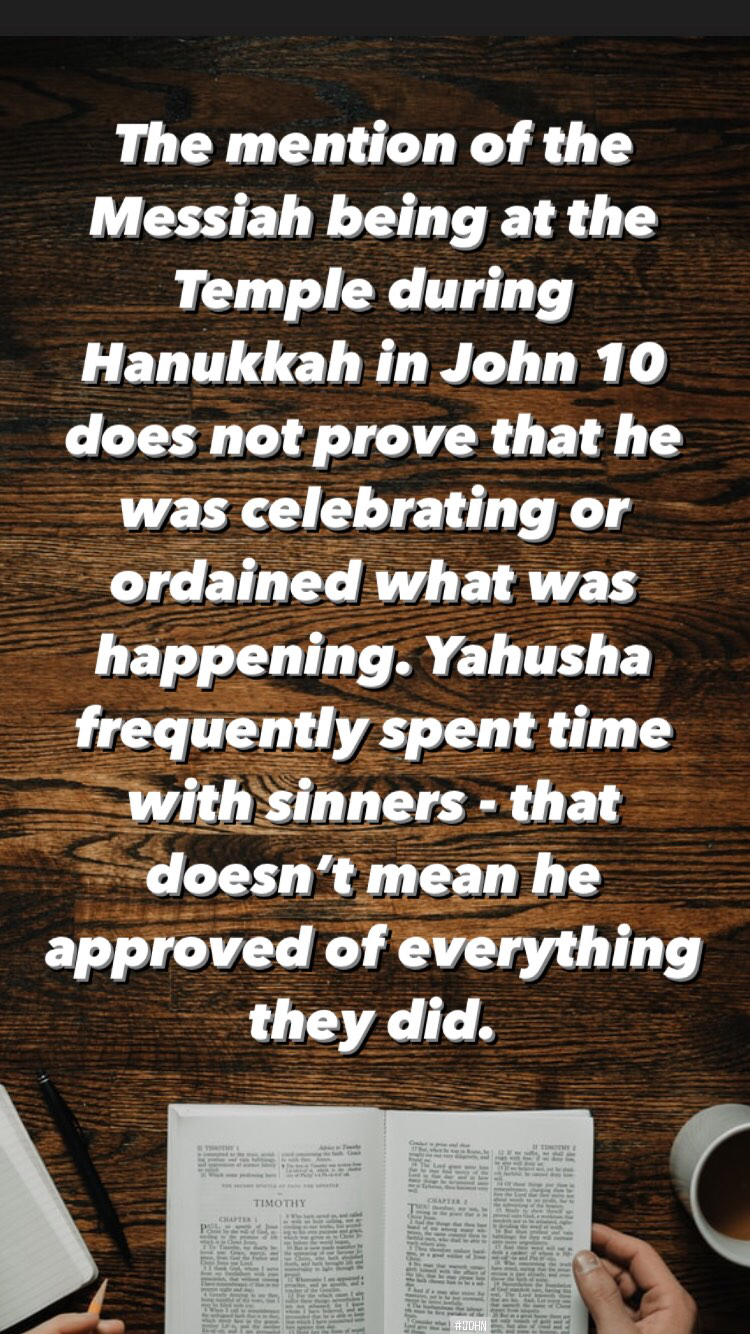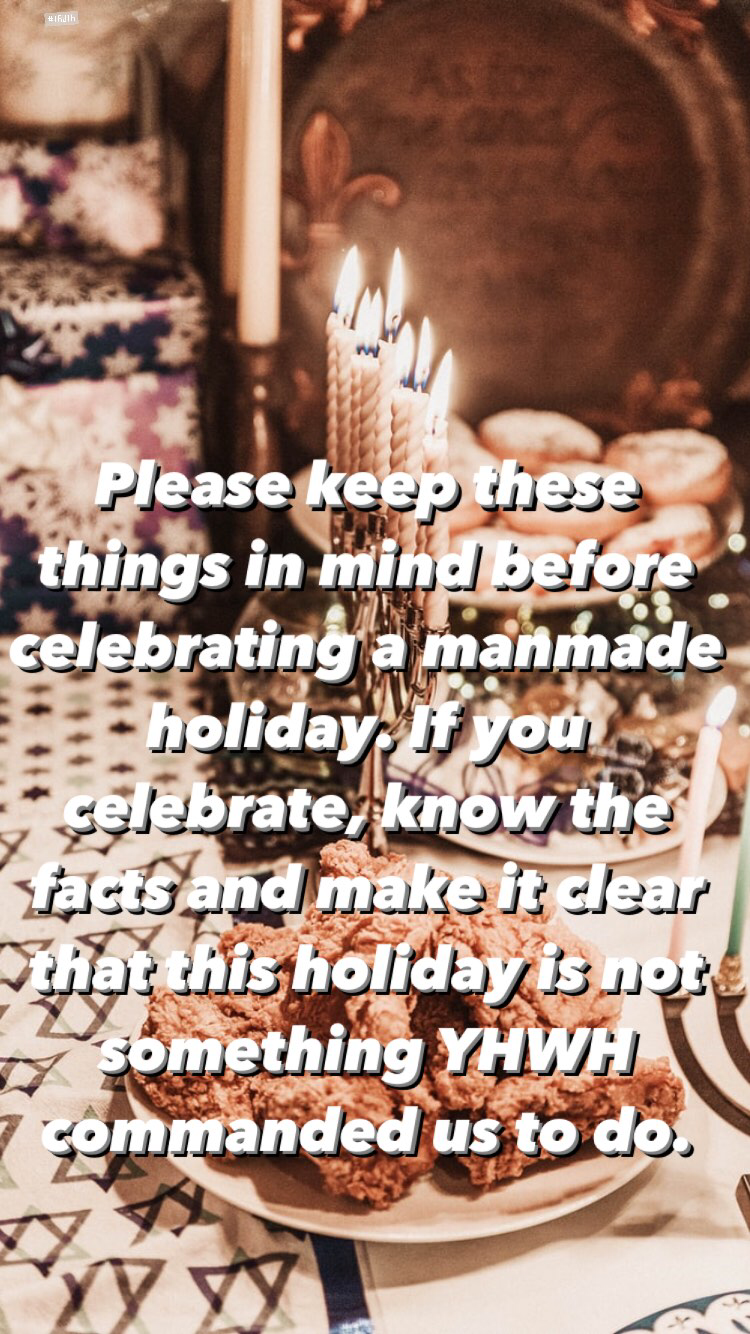This post is going to take a look at Colossians 2:16-17, which is a Bible passage that is frequently misunderstood or taken out of context. We will see that this is not a license to take part in any holiday of our choice, but a reminder to those under religious oppression that they are able to take part in the Biblical holidays like Passover because of the work of the Messiah.
"Therefore do not let anyone judge you by what you eat or drink, or with regard to a religious festival, a new moon celebration or a Sabbath day, which are a shadow of things to come, but the substance is of Christ." -Colossians 2:16-17
Many people believe that this verse is a license to essentially do whatever you want, not only with food, but when it comes to holidays. They believe it's up to each of us to decide what holidays to take part in and we are given a free pass to avoid judgment. This is the verse that is most frequently used whenever anyone raises objections to certain Christmas customs or Easter practices. People are quick to say whatever they are doing is okay because this verse says not to let anyone judge you.
But you can only view this verse from that perspective if you are looking through some very dirty lenses.
On this blog, we have discussed time and again why the New Testament does not teach or permit eating animals that God said were off limits. I'll link to those posts below for anyone not familiar with why that is.
Many Christians today think Paul's phrasing here in Colossians gives them license to trade in the Biblical holidays that God commanded his people celebrate, for manmade religious holidays like Christmas, Easter, Lent and so on. Some take it to mean it's okay to celebrate anything and everything from Oscar Night to Halloween.
But let's look at the phrasing. Colossians doesn't say, "Don't let anyone judge you for taking part in cultural holidays." God's word says, "Don't let anyone judge you for taking part in Sabbath days."
It specifically lists feast days, new moons, and the Sabbath. What's significant about this? These are all holidays and markers found in the Bible. Scripture doesn't say don't let anyone judge you for taking part in the world's holidays, it says don't worry if people condemn you for taking part in God's.
And while many translations use something like 'religous festival' we know this is referencing the Biblical holidays of Passover, Unleavened Bread, Shavuot, Trumpets, the Day of Cleansing, and Tabernacles, and not any manmade holiday that happens to be religious, such as Christmas. We know this because of verse 17. These holidays are a shadow of the things to come!
God's Biblical holidays were designed to tell the Gospel story and speak of his promises. All of these holidays point to things yet to come and still be fulfilled. While manmade holidays can be fun and even have spiritual signficance, these were not designed by the Creator to be shadows of the ultimate story of his work.
So what Paul is saying is not to let anyone judge you for the Bible holidays you keep or for honoring the Sabbath. And doesn't this fit better with what we see today? Believers who keep the Sabbath or celebrate Passover and Unleavened Bread instead of Easter are routinely criticized by other believers. That is not a surprise to God.
This also fits better with the rest of the text and the world that Paul lived in at the time of this writing. In ancient Rome, worshipping certain gods and goddesses was considered a civic duty, and those not taking part in the customs and celebrations were often blamed for any great or small calamity in the area. So would it make more sense for Paul to encourage people to not fear condemnation from others for skipping those festivities, or for him to say, 'Don't worry what other believers tell you - God's Sabbaths and holidays don't matter'? Keep in mind, much of the New Testament shows us how hard Paul worked to set a legal precedent that believers didn't have to take part in the worship of Roman gods.
If we back up to verse 15 we can see that this fits with this understanding of what Paul is getting at, because he's talking about principalities and powers being disarmed and the Messiah having made a public spectacle over them. Paul doesn't think it's fine to ignore the Sabbath and the rest of God's calendar because ungodly principalities have been disarmed, he thinks all can now celebrate God's holy days because they are no longer held in the clutches of those powerful entities that would keep them away.
So what are we supposed to not have people judge us about? Doing things God's way. We know that this passage is refering to both Biblical dietary commands, and the holidays and Sabbaths created by God. We see this because Paul said they are shadows of things still to come and that the substance of these things belongs to the Messiah. So don't let anyone judge you for living out your faith in the Messiah!
To recap, we know that while many pastors and Christians believe that this passage means you can ignore God's holidays and replace them with anything you want, that's not what the Bible teaches and is not what Paul intends to say here.
Colossians 2:16-17 is not about celebrating Christmas or Easter because:
1. Because it's talking about God's holidays and Sabbaths!
2. Paul told believers elsewhere to keep the feasts, and worked to do so himself.
3. Paul worked to establish legal precedent for believers in the Messiah to not take part in Roman holidays and worship.
Related posts:
Mars Hill and Paul's Legal Precedent to Worship Jesus
The Beginner's Guide to the Biblical Holidays
Understanding Mark 7:19 and the Messiah Declaring All Foods Clean
resize.jpg)
resize.JPG)
resize.jpg)





